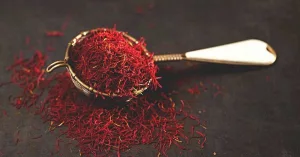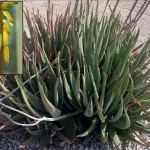Ginger water is a traditional remedy commonly used to ease issues like nausea and morning sickness. It offers multiple health perks. Preparing ginger water correctly matters to ensure you get the appropriate amount.

Ginger originates from Southeast Asia and is widely used in culinary dishes and herbal treatments across the globe. The ginger plant contains various natural compounds that may support health and well-being.
Also called ginger tea, ginger water is a simple way to take advantage of ginger’s potential benefits. Continue reading to learn about the possible health effects, practical uses, and side effects of ginger water.
Benefits of ginger water
As with many botanical remedies, more research is needed to fully clarify and confirm the uses of ginger and ginger water.
Many reported uses of ginger water are anecdotal and cannot be guaranteed to be effective or safe. Still, limited scientific evidence supports several likely benefits.
Anti-inflammatory effects
Inflammation is a natural defense mechanism of the body. Lifestyle and diet changes may be necessary to address persistent inflammation.
Eating ginger may help prevent and reduce inflammation. One study found that both taken orally and applied topically, ginger reduced inflammation associated with delayed onset muscle soreness.
According to a review, studies in humans and animals indicate that specific ginger compounds helped alleviate symptoms of inflammatory disorders such as arthritis.
While physicians may prescribe medical treatments to directly target inflammatory diseases, you might discuss with your healthcare provider whether adding ginger to your diet could be beneficial.
Antioxidant action
Antioxidants neutralize reactive oxygen species (ROS), which cause oxidative stress and cellular damage. Although your body produces ROS naturally, certain habits—like heavy alcohol use, smoking, or chronic stress—can lead to excessive ROS production.
Eating foods and beverages rich in antioxidants, such as ginger water, may help protect against the harmful effects of ROS.
A review notes that many clinical studies have highlighted ginger’s antioxidant properties. The review suggests ginger might be a complementary therapy for conditions including:
- obesity
- diabetes
- chronic kidney disease
- cardiovascular disease
Discuss with your doctor whether ginger’s antioxidant effects could be helpful for your particular health situation.
Relief from nausea and digestive support
Across many cultures, ginger is commonly used to relieve indigestion, vomiting, and nausea.
A review indicates that ginger may be effective for controlling nausea and vomiting, though additional research could clarify which ginger components are most useful.
Learn more about ginger for nausea.
May help lower blood pressure
A review found that ginger might help reduce both systolic and diastolic blood pressure.
The authors note that more research is needed to better understand ginger’s potential effects on blood pressure.
Learn about natural approaches to lower blood pressure.
Blood sugar regulation
A study reported that ginger improved fasting blood glucose in people with diabetes, suggesting potential for managing complications related to chronic diabetes.
However, another review found that ginger did not significantly change fasting blood glucose, although it did improve glycated hemoglobin (HbA1c) from baseline levels.
Learn more about natural methods to lower blood sugar.
Effects on cholesterol
A 2018 study reported that ginger may help regulate triacylglycerol (TAG) and low-density lipoprotein cholesterol (LDL-C).
The study also found that a modest dose—no more than 2 grams of ginger per day—could reduce TAG and total cholesterol.
Learn more about natural ways to lower cholesterol.
Potential role in weight management
A review of 14 randomized controlled trials involving 473 participants found that ginger supplements significantly reduced body weight and waist-to-hip ratio.
However, the review noted no significant impact on body mass index (BMI).
Hydration
Although ginger itself does not directly hydrate you, drinking ginger in water can help your fluid intake.
Starting the day with a glass of ginger water, or making it a daily habit, can contribute to staying hydrated.
Learn about effective ways to rehydrate quickly.
Risks of ginger
As with any herbal remedy or supplement, ginger may interact with medications you are taking.
Side effects can occur, especially with high doses. Possible adverse effects include:
- heartburn
- abdominal discomfort
- diarrhea
- irritation in the mouth and throat
Consult your doctor about the safety of using ginger if you are pregnant, breastfeeding, or scheduled for surgery.
Is ginger water safe during pregnancy?
Research has investigated whether ginger can help with pregnancy-related nausea and vomiting. One review noted that evidence supports ginger’s effectiveness for treating pregnancy nausea but cautioned that there may be safety concerns for certain individuals.
Another review, however, found no harmful effects from ginger consumption in pregnant people.
Talk with your healthcare provider before taking any herbs or supplements during pregnancy. Sometimes dietary and lifestyle adjustments can help reduce pregnancy nausea, such as:
- eating frequent, small meals
- avoiding fatty or spicy foods that may trigger upset stomach
- staying well hydrated
Learn more about drinking ginger tea during pregnancy.
Can ginger water act as a detox?
Detox routines aim to gradually eliminate toxins from the body. Some people mix ginger water with lemon juice for a detox drink.
However, evidence supporting this use is largely anecdotal.
How to make ginger water
Fresh ginger provides the best source for preparing ginger water. Many products contain ginger or artificial ginger flavor, but homemade ginger water made from fresh root offers the most benefit and is simple to prepare.
You can buy fresh ginger in the produce aisle; it’s a beige, knobby root, usually a few inches long.
To make ginger water, simmer the ginger in water to brew a tea. You can leave the peel on since you won’t be eating the root directly, and much of the nutrition lies just beneath the skin.
Adjust the amount of water or ginger depending on how strong you prefer the beverage. The water-to-ginger ratio below corresponds to about 1 gram of ginger extract.
To prepare ginger water:
- Rinse the section of ginger you will use.
- Use a zester to grate 1/2 teaspoon of ginger.
- Bring 4 cups of water to a boil on the stove.
- Add the grated ginger to the boiling water.
- Remove from heat and allow the ginger to steep for 10 minutes.
- Strain out the ginger pieces and discard them.
- Enjoy the ginger water hot or chilled.
Ginger water tastes good with up to a teaspoon of honey or a splash of lemon juice—avoid excessive sweeteners. If you plan to drink ginger water daily, prepare a larger batch and store it in the refrigerator.
Ginger dosage
Consuming up to of ginger extract per day may be safe.
Still, consult a physician for personalized guidance if you plan to use ginger regularly. They can advise on appropriate amounts and frequency.
The bottom line
Ginger consumption can support health and may help address multiple concerns, including reducing inflammation and supporting blood sugar, blood pressure, and cholesterol management.
Drinking ginger water or ginger tea is also an easy way to boost hydration, which benefits overall health.
Consult your doctor before trying herbal supplements. If you’re curious about ginger, begin by making your own ginger water from fresh root.

























Leave a Reply
You must be logged in to post a comment.